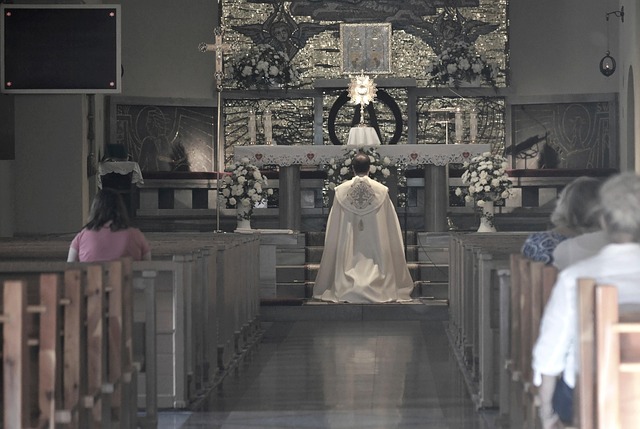The Eucharist, often referred to as Holy Communion or the Lord’s Supper, stands as one of the most profound and sacred rituals in various religious traditions, particularly within Christianity. This ritual, celebrated in myriad forms across denominations, serves as a vital link between believers and the divine, offering a moment of deep spiritual connection and communal unity.
At its core, the Eucharist embodies the essence of sacrifice and remembrance. It recalls the Last Supper, where Jesus communed with his disciples, initiating a tradition that transcends time and geography. This act of sharing bread and wine symbolizes not only Christ’s body and blood but also the profound love and grace bestowed upon humanity. The symbolism is rich and inviting, inviting participants to reflect on their faith and the sacrifices made for them.
Engaging in the Eucharist can evoke a spectrum of emotions—joy, reverence, even solemnity. For many, the act of partaking in the Eucharist transcends mere ritual; it is a transformative experience. It deepens one’s relationship with God and the faith community while encouraging personal reflection and growth. The communal aspect particularly enhances the experience, reinforcing the notion that believers are not alone in their spiritual journeys. Together, they share in a profoundly sacred moment, fostering a sense of belonging and love within the church.
The power of the Eucharist can also be seen as a source of hope and renewal. Individuals often approach the altar carrying their burdens and struggles. In the ritual of communion, they find solace, an opportunity to relinquish their worries and connect with something far greater. It serves as a reminder of the promise of redemption and the belief in a divine presence that nurtures and sustains them.
Throughout history, the Eucharist has been a cornerstone of faith, prompting debates, explorations, and deep theological inquiry. Each denomination interprets the significance and the nature of the Eucharist uniquely, yet they all recognize it as a sacred moment that carries immense weight within the broader context of faith practice. It is a celebration that goes beyond the material elements of bread and wine; it embodies a profound mystery that invites believers into a deeper understanding of their faith.
The ritual of the Eucharist is not merely a recollection of past events; it is an active participation in a divine narrative. Each time individuals gather to celebrate, they affirm their beliefs, remember the sacrifices made, and anticipate the future that their faith offers. The Eucharist parallels the cycle of life itself—birth, death, and resurrection—reminding believers that there is a bigger story in which they play a vital role.
In a world rife with distractions and uncertainties, the Eucharist offers a sanctuary of peace and unity. It connects participants to their faith, to each other, and to generations of believers who have partaken in this sacred ritual. The simplicity of the act belies its profound impact, manifesting in lives transformed and spirits renewed. As believers engage in the Eucharist, they do not just partake in a ritual; they embrace a vital expression of their faith, a sacred moment that reverberates through time and space.




